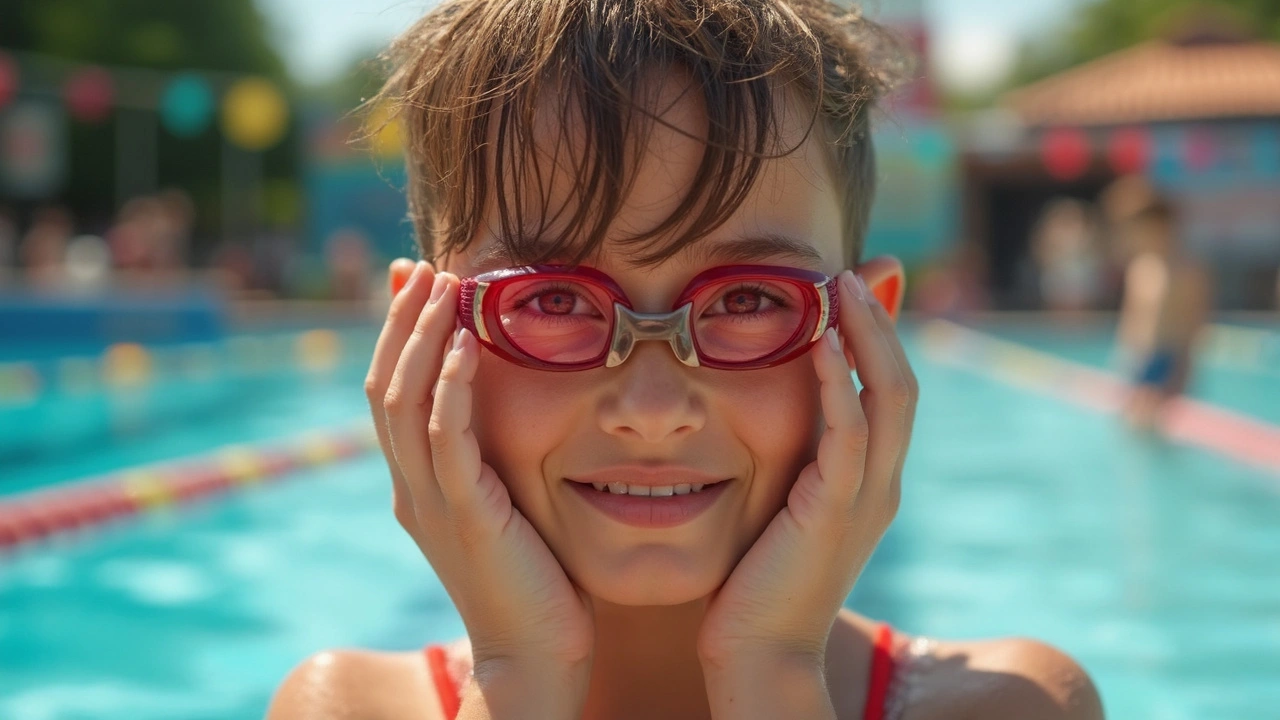Eye Redness After Swimming: What’s Happening and How to Fix It
Ever walked out of the pool and noticed your eyes look bloodshot? You’re not alone. A splash of water, chlorine, or even a tiny bug can turn your eyes red in minutes. The good news is most of these irritations are easy to treat and, with a few smart habits, you can often prevent them altogether.
Why Your Eyes Get Red When You Swim
There are three main culprits behind that nasty red‑eye feeling:
- Chemical irritation: Chlorine and bromine keep pools clean, but they also strip the protective tear film from your eyes. Without that film, the surface gets dry and inflamed.
- Micro‑organisms: Lakes, rivers, and even poorly maintained pools can hide bacteria, fungi, or algae. When these get into your eye, they can cause conjunctivitis (pink eye) or other infections.
- Physical irritation: Tiny particles of sand, dust, or even a stray contact lens can scratch the cornea. The eye’s natural response is to rush blood to the area, creating redness.
If you wear contact lenses, the risk jumps higher because lenses can trap contaminants against the eye’s surface.
Quick Relief Tips
When you notice redness, act fast. Here’s a step‑by‑step plan you can follow at home or by the poolside:
- Rinse with clean water: Use sterile saline or bottled water to flush out any foreign particles. Tilt your head back, pull the lower eyelid down, and let the liquid run over the eye.
- Apply a cold compress: A clean, damp washcloth chilled in the fridge for a few minutes reduces swelling and soothes irritation.
- Use lubricating eye drops: Over‑the‑counter artificial tears restore the tear film. Avoid drops that contain preservatives if you plan to use them frequently.
- Avoid rubbing: It feels natural, but rubbing can damage the cornea and spread any bacteria deeper.
- Consider an antihistamine drop: If the redness comes with itching or watery eyes, an OTC antihistamine eye drop can calm the reaction.
If symptoms persist beyond 24‑48 hours, get a professional opinion. Persistent redness, pain, blurry vision, or discharge could signal an infection that needs prescription drops.
For contact‑lens wearers, remove the lenses immediately, clean them with the proper solution, and give your eyes a break. If you suspect a lens is the problem, switch to daily disposables for a while.
Preventing Red Eyes the Next Time You Swim
Prevention is cheaper (and less uncomfortable) than treatment. Try these habits before you dive in:
- Wear goggles: A snug pair keeps water, chlorine, and debris out of your eyes. Make sure they’re comfortable and don’t leak.
- Check pool hygiene: Look for clear water, proper filtration, and posted chlorine levels (1.0–3.0 ppm is normal). If the pool smells strong or looks cloudy, skip it.
- Use preservative‑free drops: Apply a few drops of artificial tears before entering the water. This adds a protective layer that chlorine can’t strip as easily.
- Rinse after swimming: A quick shower with fresh water helps wash away residual chemicals. If you can, use a gentle, non‑soap eye rinse.
- Limit contact‑lens time: If you love swimming with lenses, consider daily disposables and never share them. After swimming, give your eyes a lens‑free break for at least an hour.
Following these steps cuts the odds of red, itchy eyes dramatically. And if you do end up with a bit of redness, you now have a clear plan to bring comfort back fast.
Remember, your eyes are delicate, but they’re also resilient. A little care before, during, and after a swim can keep them clear, comfortable, and ready for the next splash.
How to Quickly Reduce Eye Redness After Swimming: Proven Tips & Relief Methods
May, 9 2025
Battling red eyes after a swim is more common than people think. This article explores the real causes behind post-swim eye redness, busts popular myths, and offers smart, practical tips for soothing irritated eyes. Find out which remedies truly work, what to avoid, and how to keep swimming fun without compromising your comfort or health. Dive into a swimmer's guide on preventing and treating 'chlorine eyes,' with insights rooted in both science and everyday experience.
Read Article→
